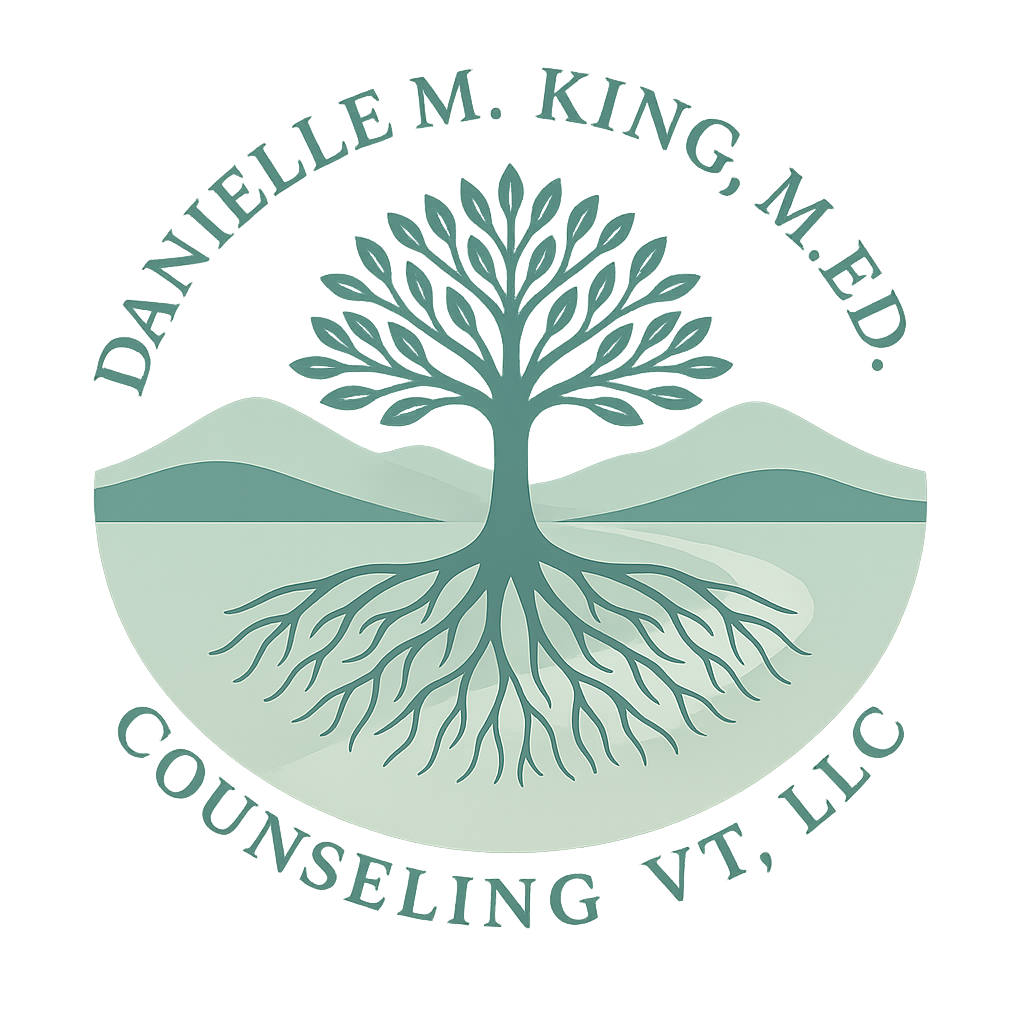When Someone You Love Has an Eating Disorder
Guidance for Caregivers Who Feel Lost, Worried, or Helpless
By Danielle King, M.Ed., Counseling VT, LLC
This Is Personal for Me, Too
As a therapist, I’ve supported individuals and families impacted by eating disorders, but I also bring the perspective of a mother. My young adult daughter was diagnosed with Avoidant/Restrictive Food Intake Disorder (ARFID) as a teenager. Navigating her recovery taught me firsthand how complex, confusing, and emotionally taxing this journey can be—from both sides of the relationship.
There were moments when I felt powerless, others when I wanted to fix everything, and many when I had to learn how to simply sit beside her discomfort without trying to erase it.
That lived experience shapes the way I support caregivers today—with empathy, realism, and deep respect for the unique role you play.
You Didn’t Cause This—and You Can’t Cure It
You didn’t cause your loved one’s eating disorder. And you can’t fix it alone. What you can do is offer nonjudgmental presence, emotional safety, and a willingness to learn—those things matter deeply.
What Your Loved One Might Be Experiencing
From the outside, an eating disorder may look like meal refusal, obsessive rituals, or emotional withdrawal. But inside, there’s often shame, fear, and protectors doing their best to manage distress.
How You Can Help (Even Without Saying the Perfect Thing)
1. Be a steady presence: 'I care about you. I’m here.'
2. Listen more than you fix: 'That sounds really hard. Thank you for sharing it with me.'
3. Educate yourself: Learn about ARFID, anorexia, bulimia, etc.
4. Avoid weight-focused comments: Focus on connection, not appearance.
5. Get your own support: You deserve care too.
Resources for Caregivers
- FEAST: https://www.feast-ed.org
- NEDA: https://www.nationaleatingdisorders.org
- Equip Health: https://equip.health/resources
- ARFID Awareness UK: https://www.arfidawarenessuk.org
- Body Kindness: https://www.bodykindnessbook.com -Mass General Brighm: https://www.massgeneral.org/psychiatry/about/patient-education/finding-help
Final Thoughts
Supporting someone through an eating disorder—especially when you love them deeply—is a quiet kind of courage. It often means holding space for pain you can’t fix, offering presence when there are no perfect words, and caring for yourself even when guilt tells you not to.
Your love matters, even when it’s unspoken. Your steadiness matters, even when you don’t see results. And your willingness to learn, stay, and grow alongside your loved one is an act of hope.
If you’re feeling unsure, worn out, or just need someone to talk through it with—I’m here. Let’s figure it out together.
Danielle King, M.Ed.
